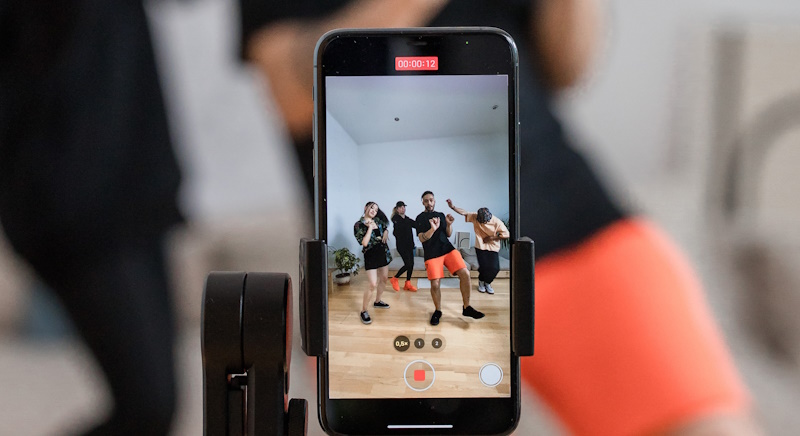Is AI Music threatening artists on platforms like TikTok?
Image credit: Ron Lach
Music is an integral part of short-form videos but could AI music ruin the potential for real artists?
AI music is looming over the horizon more and more. It can take the fairly innocent form of conjuring a backing track for musicians to jam along to. Alternatively, it can manifest in the moral and legal complexity of reproducing a vocalists voice and making them sing new lyrics.
With the explosion of short form video we’ve seen music find it’s place alongside it. The last few years has seen success in platforms like TikTok, YouTube Shorts, and Instagram Reels. Music accompanies the majority of these short videos. A viral video or trend can also mean the viral success of an artist whose music is used.
For example, RouteNote has partnered with all of these platforms to upload artists music into their libraries. This means that creators can select their tracks as the soundtrack to their short videos. The artists will get paid with every play and gain recognition with viewers able to tap on the song details to find more.
There is a chance that AI might threaten this symbiotic relationship on the behalf of human artists.
AI apps generating music
An AI music generator name Riffusion just announced it had made 4$ million in funding. The platform lets users generate short, shareable audio clips from their own verbal prompts.
The clever software has been trained on genres to develop music that matches vibes and aesthetics from keywords. The creators report that million of people have tried it out. They’ve even gained notable musicians such as Alex Pall and Drew Taggart from The Chainsmokers as advisors.
Riffusion haven’t announced plans for tracks generated on their platform to stretch beyond their app. The potential for AI generated music to be used in short videos is obvious though. If Riffusion don’t capitalise on it, it’s only a matter of time before someone does.
Users on platforms like TikTok use music to create a vibe. With AI, users could simply prompt the program to create the perfect audio aesthetic they’re after.
However, this probably won’t come from independent apps like Riffusion. Facebook are exploring AI music generation through their MusicGen. They could easily build this into their companion apps like Instagram for use in Reels, with some refinement.
Musicians Vs. AI
We’ve seen the topic flare up in recent months as AI grows stronger and represents a larger existential threat with every passing moment. Musicians led by ASCAP took to Capitol Hill to demand legal protection for human-made music. The IMPF have laid out their manifesto for a music industry that includes AI but serves humans.
AI is constantly getting smarter and more powerful. It has already proliferated through our music activity, with algorithms helping us find the right playlist and generative music accompanying artists or creating infinite ambience.
It has a place in music, but it cannot be used to overshadow the real people involved. We must protect artists music which is sometimes used to train AI. Artists’ voices cannot be allowed to be replicated unless with express permission. We can’t allow AI to generate music that takes the place of real artists.
As the concerns increase, so do the conversations. Senators in the US recently proposed the No Fakes Act, a bill that would allow legal action against the digital reproduction of an artist without consent.
The landscape is changing and we wait to see now whether governments can respond quickly enough to put protections in place before it’s too late.
